SUMMARY
This is AI generated summarization, which may have errors. For context, always refer to the full article.
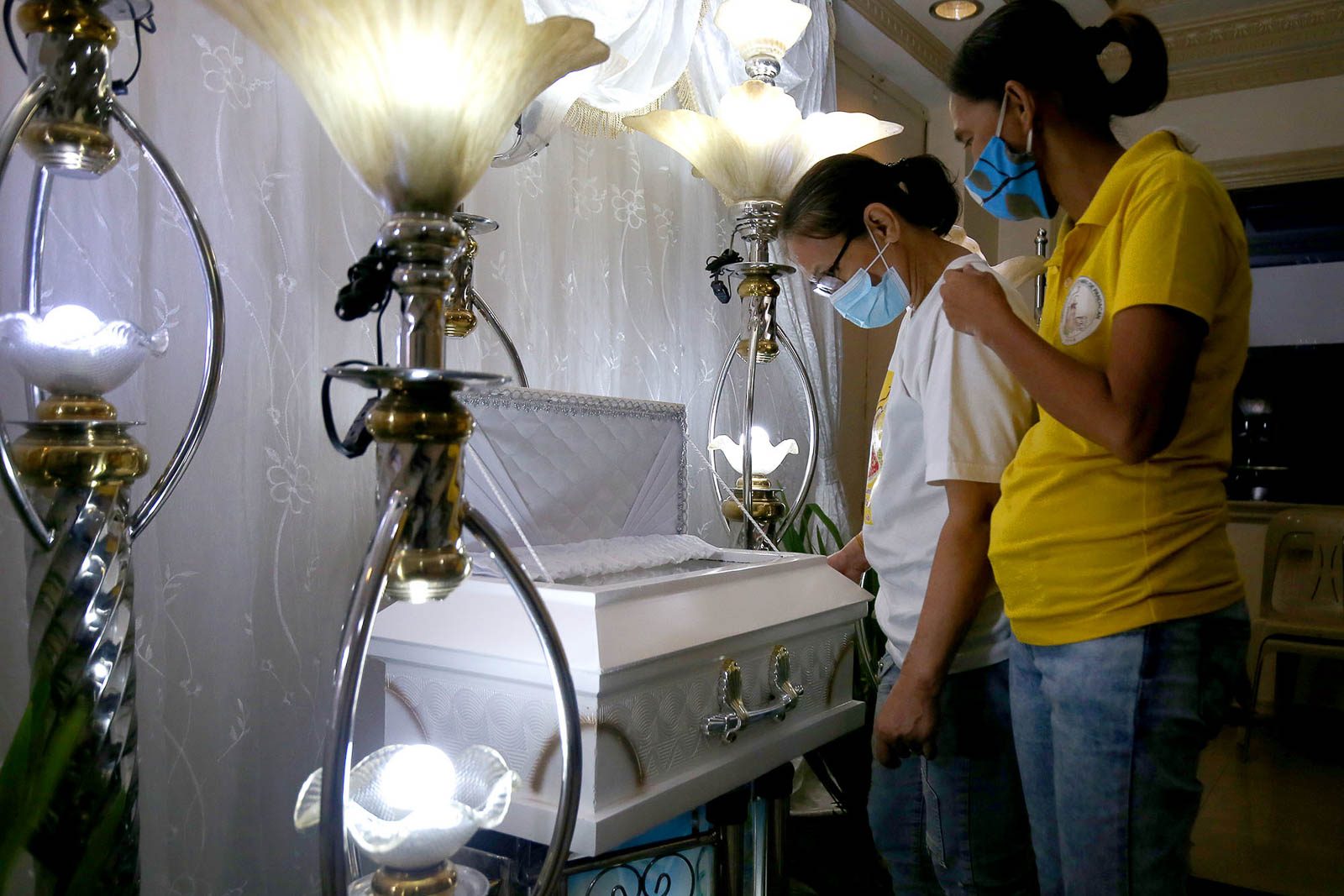
In the 5 months it took Supreme Court justices to debate and finalize the legalities of granting temporary release to political prisoners, a baby was born and then died without availing of a theoretical relief proposed by one of the magistrates.

The 301-page decision and opinions received by the petitioners only on October 9 revealed there were heavy and extended deliberations on the case; however, the justices unanimously decided to just redirect the prisoners to lower courts for bail hearings.
It underscores what rights groups slammed as an act too late by the High Court.
River Nasino, 3 months old, died on October 9 because of pneumonia. River was born underweight at the Dr Jose Fabella Memorial Hospital on July 1. Her mother, 23-year-old activist Reina Mae Nasino, carried the baby in her womb while detained at the Manila City Jail.
Associate Justice Amy Lazaro Javier wrote in her separate opinion to give “relief” to Baby River, saying “I believe we have a role to play in protecting the baby from adverse consequences that are not of the baby’s own doing.”
However, that relief was not specified and was not included in the main decision, therefore it remained theoretical until the baby’s death. The Manila court handling Reina Mae’s charges denied all petitions for mother and child to stay together for at least a year.
The political prisoners are on trial for non-bailable charges. Reina Mae is charged for illegal possession of firearms and explosives, and was arrested in a heavy crackdown last November 2019 on the power of a search warrant issued by the same Quezon City Judge.
Extensive deliberations
The decision simply said that the Supreme Court cannot decide to grant bail to any of the political prisoners who filed the petition, because it’s the lower court that should hear evidence on the eligibility for bail.
The decision remanded the case back to the lower courts, with an order to act with “utmost dispatch.”
The petition was filed on April 8, begging for temporary release due to humanitarian grounds because of the coronavirus pandemic. Although the decision was promulgated on July 28, it was only publicly announced on September 10. Full copy of the decision reached petitioners only on October 9.
The main decision was only 7 pages long, and was not attributed to a ponente. Supreme Court Spokesperson Brian Keith Hosaka said it was a per curiam ruling, or a ruling issued in the name of the Court rather than a specific justice.
Sources have confirmed Associate Justice Edgardo Delos Santos was the member-in-charge, but it was unclear how he was relegated to a mere separate opinion.
Justices disputed Delos Santos’ arguments that international rules on prisoners are not applicable, that only Congress and the Executive can create a prison release committee, and that releasing alleged communists will unnecessarily burden the government during a pandemic.
Delos Santos’ opinion was the longest at 92 pages, which voted to deny the petition for lack of jurisdiction.
Justices also debated whether the Supreme Court decision on the bail grant to plunder defendant Juan Ponce Enrile, which was based on humanitarian grounds, should be applied to the petition, or if it should be recognized at all as precedent.
Justices also introduced new principles, but which also did not make it to the 7-page main decision.
Senior Associate Justice Estela Perlas Bernabe invoked the American principle of “deliberate indifference,” which proposes to look at whether the government neglected to give the prisoner sufficient medical attention.
Associate Justice Marvic Leonen proposed granting a Writ of Kalayaan, which would be a form of a continuing mandamus, or a continuing order for the government to fix prison conditions.
Delos Santos, Associate Justice Rodil Zalameda, and Chief Justice Diosdado Peralta cited both government and Supreme Court efforts to decongest jails.
The petitioners also asked the Supreme Court to create a Prison Release Committee to screen prisoners eligible for temporary release amid the pandemic, but even that was debated, as some justices thought only Congress or the Executive have the power to do so.
Justices vs Delos Santos
The petition was difficult from the start because of lack of jurisprudence to temporarily release prisoners during a pandemic. (PODCAST: Law of Duterte Land: Legal difficulties of a prisoner mass release)
Delos Santos said, “There is no constitutional provision or law which automatically grants bail,” and voted to deny the petition just based on that.
Bernabe, Leonen, and Associate Justice Benjamin Caguioa all believed that the Court can do substantial justice – or fill the gaps in the law – but the 3 believed that lower court hearings to establish facts will be necessary.
“When the right to life is at stake, the Bill of Rights operates; making a fair and just ruling to preserve the right to life is not entirely dependent on some unpassed legislation that directs the structural improvement of our jails,” said Bernabe.
Delos Santos also said that the Nelson Mandela rules, or the United Nations Standard Minimum Rules for the Treatment of Prisoners, were not enforceable in the Philippines.
Delos Santos said that based on realistic assessment, the Philippine government should also not be expected to adhere to the international rules.
Bernabe, Leonen, Caguioa, and Javier disagreed.
Apart from the fact that the Nelson Mandela rules are what you call peremptory norms, or universally-accepted laws which nations cannot reject, Caguioa said Philippines’ own laws have adopted the same rules.
“Notwithstanding the non-binding and recommendatory nature of the Nelson Mandela rule, they have effectively been transformed as part of the law of the land,” said Caguioa.
Delos Santos also echoed Solicitor General Jose Calida’s accusation that the political prisoners are communist rebels. Delos Santos said that to free rebels would overburden the government during a pandemic.
“The government cannot afford to gamble its chances and resources by allowing petitioners who are allegedly key members of the CPP-NPA-NDF to roam free while the COVID-19 pandemic remains an imminent and grave threat,” Delos Santos said.
Leonen said it was “premature” for Delos Santos to make such pronouncements “based on unverified information.”
“This Court must refrain from making conclusions on the merits of the petitioners’ pending cases,” said Leonen.
Another conflict was how the Supreme Court would treat the Enrile bail ruling. As dissenters to that decision, Leonen, Bernabe and Caguioa all said the ruling should be declared pro hac vice, or a decision applicable to that case, or to Enrile, only.
But Javier said that as long as the ruling is not reversed, the Enrile bail ruling remains a forceful jurisprudence that must be followed. She said: “For better or for worse, until overturned, our jurisprudence has to reckon with Enrile as a rule that may be invoked and should be applied whenever the circumstances call for it.”
Recipe for authoritarianism
Lastly, Delos Santos also invoked the political question doctrine which gives leeway to the executive branch’s discretion, even if it steps on individual freedoms, if the general public welfare is at stake.
Delos Santos said: “The State’s exercise of its prerogative to elect appropriate strategies under the present public health emergency situation has ample basis.”
Javier said she was “not comfortable” with that idea.
“This is a recipe for authoritarianism, which I am sure even the respondents and the Office of the Solicitor General are not advocating at present,” Javier said.
As the Philippines approaches its 7th month of lockdown, with coronavirus cases still rising, the political prisoners now have no other recourse but to file motions for bail in the lower courts.
But before Reina Mae Nasino can think of bail, she will first file an urgent motion for furlough – to see her dead baby one last time. – Rappler.com
Add a comment
How does this make you feel?
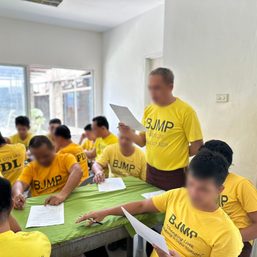
![[OPINION] An urgent appeal to amend the GCTA law](https://www.rappler.com/tachyon/2024/03/An-urgent-appeal-to-amend-the-GCTA-law.jpg?resize=257%2C257&crop_strategy=attention)
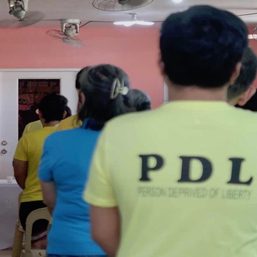
![[Under 3 Minutes] Silip sa loob ng Bilibid](https://www.rappler.com/tachyon/2024/01/title-card-ls-1.jpg?resize=257%2C257&crop=420px%2C0px%2C1080px%2C1080px)
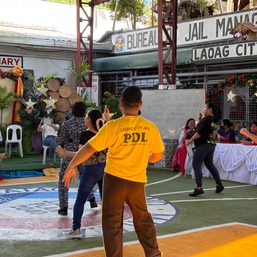
![[Rappler Investigates] Who’s fooling who?](https://www.rappler.com/tachyon/2024/02/rodrigo-sara-duterte-2019.jpeg?resize=257%2C257&crop=167px%2C0px%2C900px%2C900px)
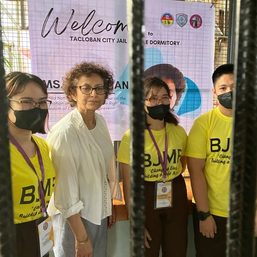

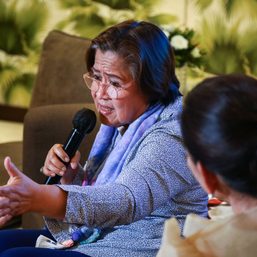
There are no comments yet. Add your comment to start the conversation.